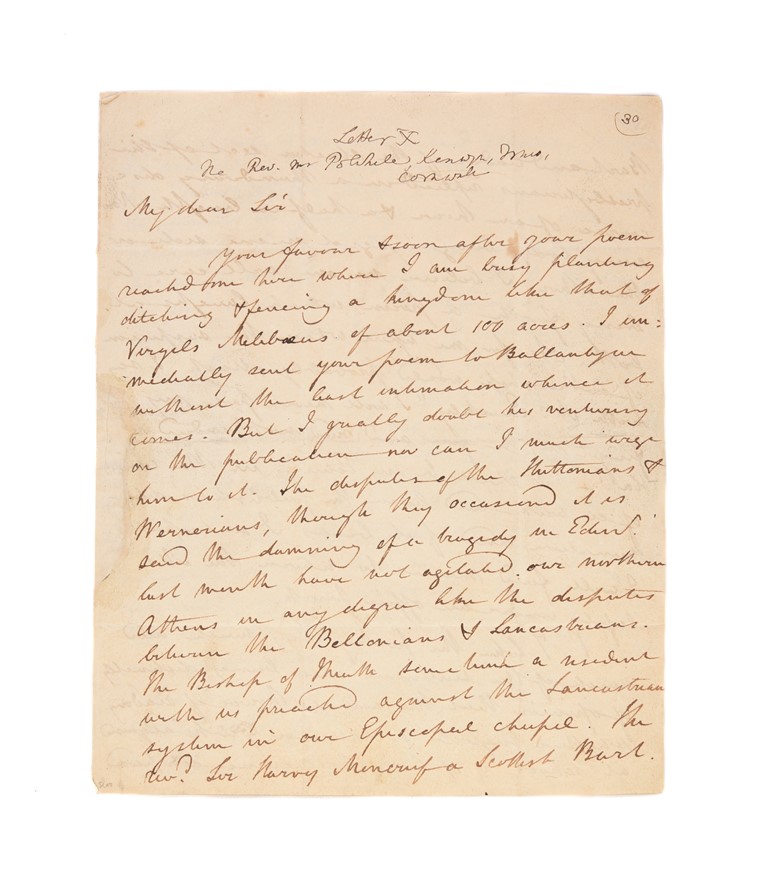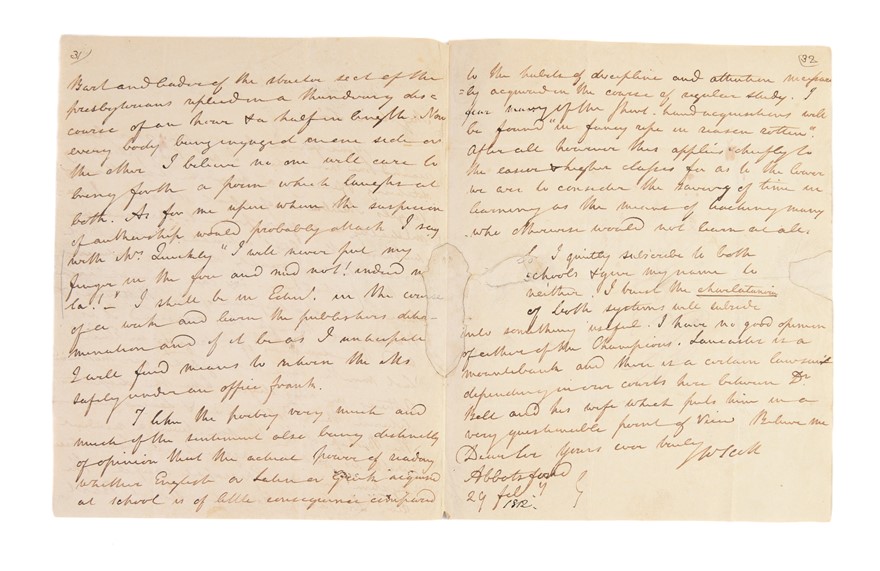Autograph Letter Signed ("W Scott") to Rev. Mr Polwhele of Cornwall
SCOTT, Walter
£1500.00
3 pages 4to with integral address leaf (Kenwyn, Truro, Cornwall), Abbotsford, 29 February 1812 (post marked 4 March 1812).
Scott on the hot debates in Scotland at the time (school systems and geology); and Polwhele's poem (The Deserted Village School), quoting Mistress Quickly from Shakespeare's The Merry Wives of Windsor to communicate his hope that Polwhele's poem will not be ascribed to him: "....The dispute of the Huttonians & Wernerians, though they occasioned it is said the damning of a tragedy in Edinr. last month have not agitated our Northern Athens in any degree like the disputes between the Bellonians & Lancastrians.. . Now everybody being engaged on one side or the other I believe no one will care to bring forth a poem which laughs at both. As for me upon whom the suspicion of authorship would probably attach I say with Mrs. Quickly "I will never put my finger in the fire and need not!""
A long and detailed letter from Scott to the Rev. Polwhele. Polwhele, a clergyman and literary man from Cornwall enjoyed a correspondence with Scott for over 30 years (although the pair never met), and perhaps is best remembered for his notorious poem The Unsex'd Females, A Poem (1898), a reaction to female authors in the wake of the French revolution.
Polwhele had sent Scott his poem, The Deserted Village School, which was a work satirising the monitorial school system, recently implemented. The Bellonians & Lancastrians were the followers of Bell and Lancaster, the two men championing two similar yet subtly different systems that implemented (what would, centuries later, be called) peer to peer teaching. He uses the analogy of the Huttonians and the Wernerians (two differing schools of thought relating to the origin of geology and the world) to emphasise how hotly debated these ideas were at the time.
Scott writes that "I immediately sent your poem to Ballantyne without the least intimation whence it comes. But I greatly doubt his venturing on the publication, nor can I much urge him to it... I shall be in Edinburgh in the course of a week, and learn the publishers' determination; and if it be as I anticipate, I will find means to return the MS safely under an office frank." In spite of his belief the poem will not find a publisher he offers his approval of the work, and adds some thoughts on schooling: "I like the poetry very much, and much of the sentiment also, being distinctly of opinion that the actual power of reading, whether English or Latin or Greek, acquired at school, is of little consequence compared to the habits of discipline and attention necessarily acquired in the course of regular study." Contrary to Scott's anticipation, Ballantyne did publish the poem.
Published in The Letters of Sir Walter Scott, ed. Grierson (1932, vol 3, p.83). Bought from Maggs in 1932, remaining in the same collector's collection until we recently reacquired it.
Loss at the central fold and at the fore edge of the second leaf, affecting two words, both with neat historic repairs.
Stock Code: 243959





